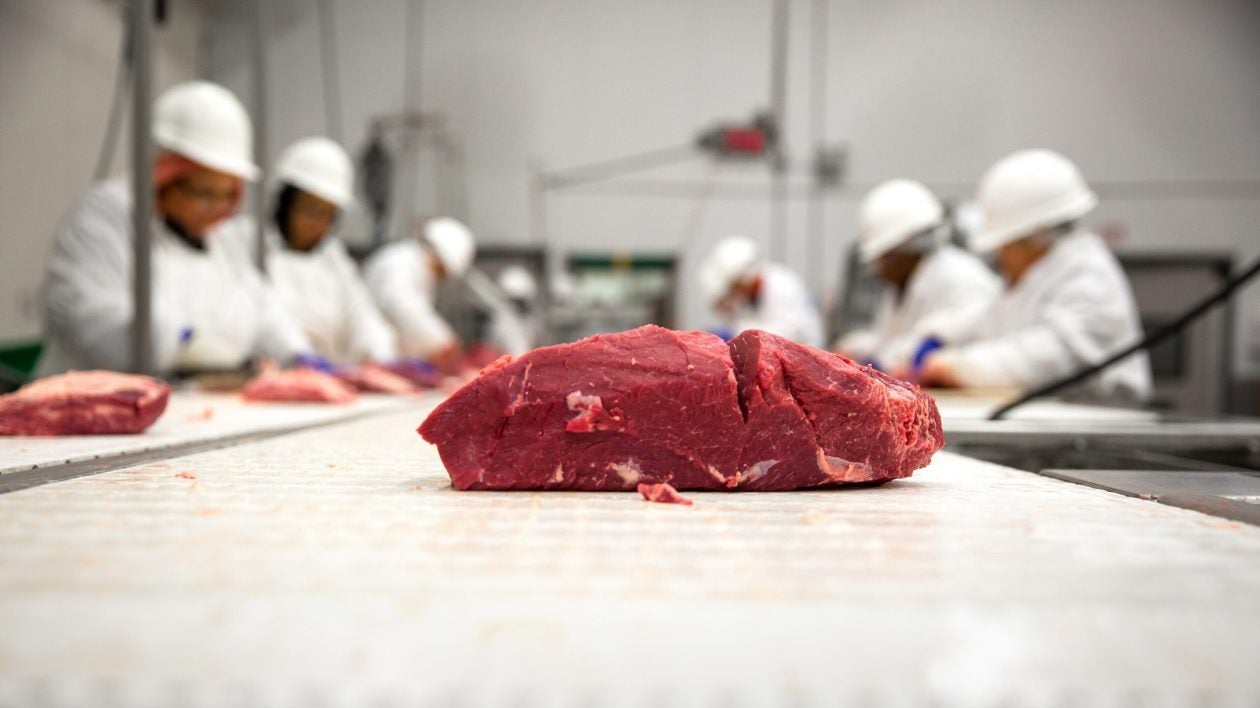
A hard-hitting report from an investor network on meat industry labour shortages has pointed the finger at the processors themselves.
The London-based FAIRR Initiative, an investor consortium representing more than US$70tn in combined assets, criticises meat companies over working conditions.

Discover B2B Marketing That Performs
Combine business intelligence and editorial excellence to reach engaged professionals across 36 leading media platforms.
Its Working Conditions: Unpacking Labor Risk in Global Meat Supply Chains report reviewed seven of the world’s largest meatpackers and revealed “backward steps on working conditions, exacerbating labour shortages in the sector”.
FAIRR said “investors are concerned that poor labour practices at leading meat firms are contributing to labour shortages in the sector which pose an ongoing financial risk, impacting business productivity and exacerbating production setbacks”.
It added: “Evidence shows that shortages are becoming more prevalent and are linked to poor working conditions, including plant-level health and safety risks faced by workers, which jeopardise companies’ ability to attract and retain willing workers. This is a major risk, which is impacting production and profits.”
FAIRR reported that in the US, job postings for meatpacking workers increased by 86% between 2017 and 2021. In the UK, the British Poultry Council notes its members have cut back chicken production by 5%-10% due to shortages, and the British Meat Processors Association said its members are 15% short on staff.

US Tariffs are shifting - will you react or anticipate?
Don’t let policy changes catch you off guard. Stay proactive with real-time data and expert analysis.
By GlobalDataOn the Continent, Belgian industry body Fevia has cited labour shortages as one of the main challenges facing its members.
FAIRR has asked seven global meat companies to “disclose, strengthen, and enforce labour policies that promote a stable, productive, and healthy workforce”.
Three are US firms: Tyson Foods, Sanderson Farms and JBS USA, the American subsidiary of the Brazilian meat giant. Two are from Brazil itself, Marfrig and BRF. The UK’s Cranswick and WH Group from China, which owns US meat processor Smithfield Foods, are also included on the list.
“However, companies targeted by the engagement fail to disclose current or projected staff shortage data or key actions being taken to attract and retain permanent staff, and Tyson Foods is the only company to have recognised labour shortages as a key business and operational risk,” FAIRR said.
Amongst other findings, the investor network’s report said investigations into child labour in a US slaughterhouse cleaning agency used by two of the firms highlight the risks of sub-contracting. It said six of the seven companies do not report data on their temporary or sub-contracted workers, despite associated reputational and operational risks.
It said only three of the seven companies disclose information on sick pay. It reported that sick pay benefits introduced during the height of the Covid pandemic have been “largely repealed or weakened”.
Of the companies the report focuses on, only WH Group publicly discloses metrics on how many sub-contracted workers it employs.
FAIRR said Marfrig stands out as the most improved company in the “engagement”, having upped its disclosure across four key areas: grievance mechanisms, sick pay, the distribution of its workforce across employment contract types and worker representation.
Jeremy Coller, chair and founder of FAIRR and chief investment officer of investor Coller Capital, said: “FAIRR’s investor members are increasingly concerned by the financial risks associated with poor working conditions in many of the leading global meat producers. Poor working conditions disrupt operations, erode health and safety standards and are a clear financial risk for investors in meat companies. During Covid, the meat sector stepped up to address labour risks, however, many of these improved policies have been reversed.”
Mark Lauritsen, international vice president of US meatpacking and processing union the UFCW, said: “Meatpacking and food processing workers were on the front lines during the height of the pandemic, risking their health every day to ensure families had food on their tables. Despite this, meatpacking companies have refused to act with the urgency needed to address the serious health and safety risks we continue to see at the plant level.
“As FAIRR’s report highlights, it is time for the meatpacking industry to do their part. Pre-packaged statements of support for workers and their freedom of association are not enough.”
Just Food asked all seven companies mentioned in the report for their response to its conclusions.
Marfrig said: “The report clearly shows how Marfrig has consistently stood out positively in relation to employee policies and practices among other companies in its sector.
“The company was the only one to increase transparency levels in eight of the 12 items analysed by the entity [FAIRR] since 2021. For example, Marfrig was a pioneer in disclosing the distribution of its workforce over all five countries it operates.
“In addition, the company provided transparency to the participation of temporary and permanent employees, as well the types of occupation, part-time or full-time. In health and safety – a category in which only Marfrig gives disclosure – there was also progress.”





